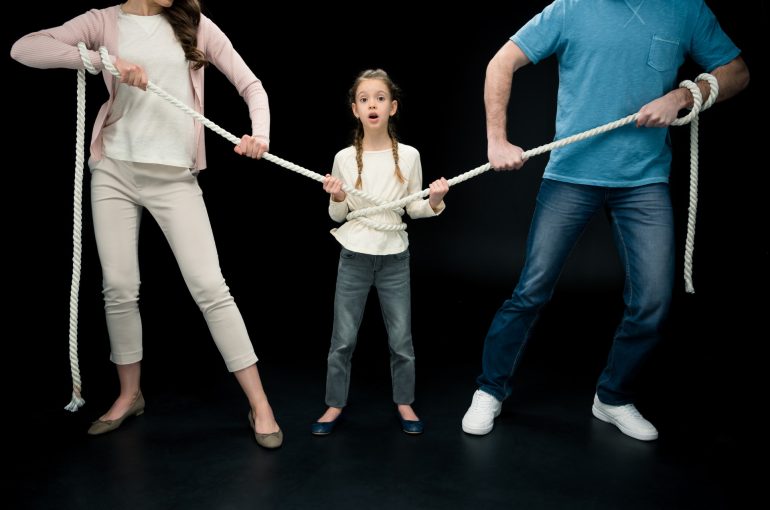Understanding the UCCJEA – Why does some other state besides Texas get to decide custody of my children?
A BRIEF HISTORY
Starting in the 1970’s, divorce and custody cases began to dramatically rise across the country. While there are a variety of reasons for this increase in custody cases, the increasing volume of child custody cases exacerbated the problem of “forum shopping”. Forum shopping is where parents look for a state (or “forum shop” for a state) that they felt would rule more in their favor. This became such a recurring problem that legislators across the country established the Uniform Child Custody Jurisdiction Enforcement Act (“UCCJEA”). First introduced in 1997, this act is designed to prevent parents from moving to a different state in the hopes of securing a better child custody decision for themselves than the state in which they currently live. To date, 49 out of the 50 states have adopted the UCCJEA. The only hold out state is Massachusetts.
WHAT DOES THE UCCJEA DO?
It establishes standards for Judges to decide which state should hear arguments about child custody. This is why one of the first questions a lawyer will ask you is where do your children reside and how long have they lived there. There is however one major exception: Native Americans. To the extent that the UCCJEA conflicts with the Indian Child Welfare Act, the Indian Child Welfare Act supersedes the UCCJEA. For anyone else, which is just about everbody, the UCCJEA controls. In Texas, the UCCJEA is listed under Section 152 of the Texas Family Code. The Act itself is over 21 single spaced pages long and contains over 7,500 words. The Act consists of tow major provisions. The first major provision concerns jurisdiction which means these are the rules to decide which state will hear the child custody case. The second major provision is enforcement. The enforcement provision is just that, the rules for enforcing decisions on which state will hear the child custody case.
THE “MECHANICS” OF THE UCCJEA
Like many standards in Family Law, the UCCJEA is a “backwards” looking statute. This means the act examines the history of where the children have been living to decide which state should hear the child custody case. Ideally, you want your state to the “home state” for custody decisions, but sometimes that’s not always possible. Quoting directly from the statute, Section 152.201 of the Texas Family Code states:
Sec. 152.201. INITIAL CHILD CUSTODY JURISDICTION.
(a) Except as otherwise provided in Section 152.204, a court of this state has jurisdiction to make an initial child custody determination only if:
- this state is the home state of the child on the date of the commencement of the proceeding, or was the home state of the child within six months before the commencement of the proceeding and the child is absent from this state but a parent or person acting as a parent continues to live in this state;
- a court of another state does not have jurisdiction under Subdivision (1), or a court of the home state of the child has declined to exercise jurisdiction on the ground that this state is the more appropriate forum under Section 152.207 or 152.208, and:
-
- (A) the child and the child’s parents, or the child and at least one parent or a person acting as a parent, have a significant connection with this state other than mere physical presence; and
- (B) substantial evidence is available in this state concerning the child’s care, protection, training, and personal relationships;
3. all courts having jurisdiction under Subdivision (1) or (2) have declined to exercise jurisdiction on the ground that a court of this state is the more appropriate forum to determine the custody of the child under Section 152.207 or 152.208; or
4. no court of any other state would have jurisdiction under the criteria specified in Subdivision (1), (2), or (3).
(b) Subsection (a) is the exclusive jurisdictional basis for making a child custody determination by a court of this state.
(c) Physical presence of, or personal jurisdiction over, a party or a child is not necessary or sufficient to make a child custody determination.
I’ve lived in Texas all my life, so why does Colorado (or some other state) get to decide where my children reside?
This question gets back to the home state rule and is why I included the entire provision of the statute dealing with initial child custody determinations. To answer this question, let me use a hypothetical. Let’s assume your child is 8 years old and has lived with you in Texas and even attended her first 3 years of school at Brentfield Elementary School in Richardson, Texas. For the most part, you and your ex have gotten along well and no custody order has ever been entered. Summer comes along and your son goes to stay with his dad in Denver, CO beginning in May of 2023. In August 2023, your ex calls you up and asks if your son can stay with him in Denver until Christmas. Because you are wanting to go along to get along, you agree to this request with your ex. Then when Christmas comes, your ex serves you with custody papers out of a court in Colorado. Which state has jurisdiction? Colorado does and this is because your son has spent the last six months living with his dad. In essence, by allowing your son to stay with his dad through Christmas, you gave up custody of your son without even realizing its happening. Trust me when I say it happens. More than it should. If you do not have a custody order in place and are considering such a scenario, contact our office for a consultation before you take the plunge. Otherwise, you might find yourself with some serious regrets and feeling like your ex stole custody from you without you even realizing it.


Leave a Reply